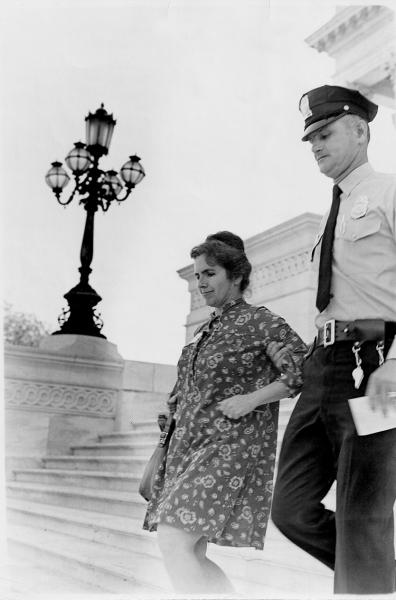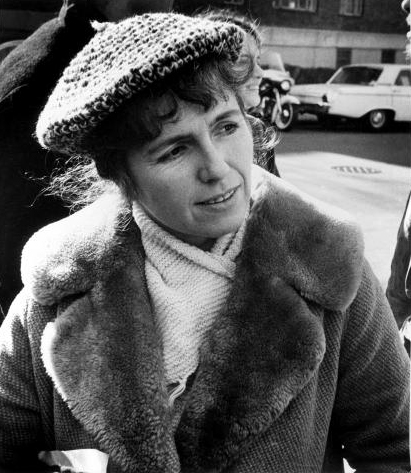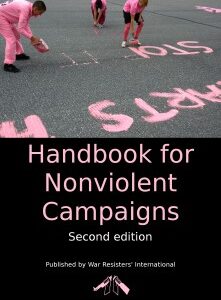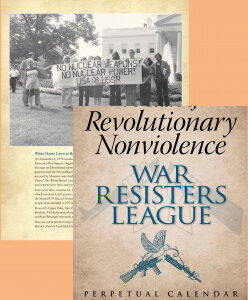Still Amazing: Grace Paley on Film

Grace Paley: Collected Shorts
Directed by Lilly Rivlin
2010, The National Center for Jewish Film, 74 minutes
Grace
Directed by Herman J. Engels, Linda Leehman, and Sonya Friedman
2010, Four Corners Productions, 51 minutes
“It is the responsibility of the poet to be a woman … to cry out like Cassandra … ” Grace Paley (1922–2007) asserted in one of her best-known poems.
Grace fulfilled those responsibilities and more. (She was always “Grace” to the hundreds who knew her and to most of the thousands who knew any face of her many-sided career, even to the writer of her obituary in the New York Times.) A poet and short-story writer whose work is an essential part of the 20th-century canon, she was also an educator who helped many aspiring writers find their own voices. Yet she was equally famous as the “combative pacifist” and “cooperative anarchist” who climbed fences and trespassed onto the property of the mighty, who served jail time for those actions more times than she could count, and who also used her talent anonymously, to draft eloquent statements for groups and efforts with which she was involved. Not least of all, she was a passionately loving daughter, sister, wife, mother, and friend.
Grace may have been uniquely gifted in her ability to maintain all those selves at once and seamlessly; certainly no other writer of her stature has ever compiled such an extensive arrest record, at least in the cause of peace and justice. (For most of her activist life, the War Resisters League was her political home base.) She left us too soon, in 2007 at age 84. Now some of those who knew and loved her have created two documentary films of her life, bringing her back to us for an hour or two.
Grace Paley: Collected Shorts is a luminous tribute to Grace in all her aspects. Grace and her friends and family talk about her family life, her career as a writer and teacher, and her work as an activist. She discusses her childhood as Grace Goodside, youngest child of Russian radicals who had been exiled to Siberia but freed with many others at the birth of a son to Tsar Nicholas. She speaks with warmth about her first husband, camera operator Jess Paley, whom she married in the pressure-cooker atmosphere of World War II and who was the father of her children Nora and Danny. She talks about the lives of the women she knew in Greenwich Village, where she lived, and of her increasing need to tell their stories. She talks about the stories themselves, eventually collected in The Little Disturbances of Man, Enormous Changes at the Last Minute, and Later the Same Day, which were inspired, she says, by the lives of the women she knew in the community. Novelist Alice Walker, critic Vivian Gornick, and other writers talk about the significance of the stories; still others about her influence on them when they were her students.
Grace and her movement friends and comrades—WRL’s David McReynolds, Rabbi Sharon Kleinbaum, and artist Vera Williams, among others—talk, too, about her activism, about counseling draft resisters during the Vietnam War, about flying to North Vietnam to secure the release of some U.S. prisoners of war, about her arrest for carrying antiwar signs on the White House lawn in 1979, about the Unity Statement she drafted for the 1980 Women’s Pentagon Action, and about her arrest for climbing a fence at the Seneca, N.Y., Army Depot in 1983.

Her daughter Nora describes her excitement when Grace served six days in the Women’s House of Detention, the infamous jail in Greenwich Village, in one stroke making her family “like the other families on Sixth Avenue.” Grace and others talk about the impact of the women’s movement on her life and work, with Grace calling it “the most important movement in the world,” and Walker and Gornick conducting an argument-by-proxy about whether Grace was or wasn’t a feminist. (Walker takes the affirmative, and Gornick the negative, but the evidence is on Walker’s side.) Grace and her second husband, architect-poet Robert Nichols, talk about their romance and their 35-year marriage.
Interspersed among the conversations, archival photographs, and interview material are clips of Grace reading excerpts from her poems—love poems, antiwar poems, an “anti-love poem” that is actually a love poem—and from her stories. Also included is her lyrical and moving memoir fragment, “Traveling,” an account of a trip through the South on a segregated bus in 1943. In it she talks about “meeting” her future Black grandchild (her daughter Nora’s son) 50 years before his birth. After Grace offers to vacate her seat for a Black woman who can’t sit in the seat, Grace offers to hold the woman’s sleeping child.
The other film, entitled simply Grace, uses similar material—sometimes even the same material—but to less effect. It’s labeled on its case “a documentary” but in the film itself, “a tribute,” and seems unfocused. Some 20 minutes shorter than Collected Shorts, it includes interviews with fewer people and focuses more on Grace’s careers and less on her biography, omitting, for instance, any mention of her first marriage. It identifies her daughter only as “Nora, daughter” but fails to give her last name. Still, it has long segments of Grace herself, and if Lilly Rivlin had not made Collected Shorts, it would have been better than no film at all about Grace.
Unfortunately, most of the faces in both documentaries are white. It’s true that the peace movement in which Grace worked for so much of her life was overwhelmingly white, but it wasn’t so exclusively, nor was the women’s movement. The makers of both films might have gone to the trouble of searching out more diverse faces to provide a wider perspective on their subject and her impact. The absence of people of color is much more conspicuous in Grace, which doesn’t even acknowledge Grace’s interracial family, including only a single snapshot of her with Nora’s son, but failing to identify him as her grandchild.
Both films include readings by Grace of the poem “Responsibility.” Collected Shorts wisely opens with the beginning of the poem but saves its powerful last line for the end of the film: “It is the responsibility of the poet … to keep an eye on/this world and cry out like Cassandra, but be/listened to this time.”
She was listened to. Her words will be listened to for many years to come in the minds of lovers of poetry and admirers of heroism. Now, thanks to Collected Shorts and—if to a lesser extent—Grace, we can keep listening to Grace’s words in her own voice.
To arrange for public screenings or to purchase DVDs of Grace Paley: Collected Shorts, contact the National Center for Jewish Film. Copies of Grace are available from gracepaleyvideo.com.
Photos: top: Courtesy of the national Center for Jewish Film; right: Diana J. Davies.
WIN Publications Committee member Judith Mahoney Pasternak interviewed and wrote about Grace Paley often, starting in 1984.

 Handbook for Nonviolent Campaigns, 2nd Edition
Handbook for Nonviolent Campaigns, 2nd Edition  WRL Perpetual Calendar
WRL Perpetual Calendar